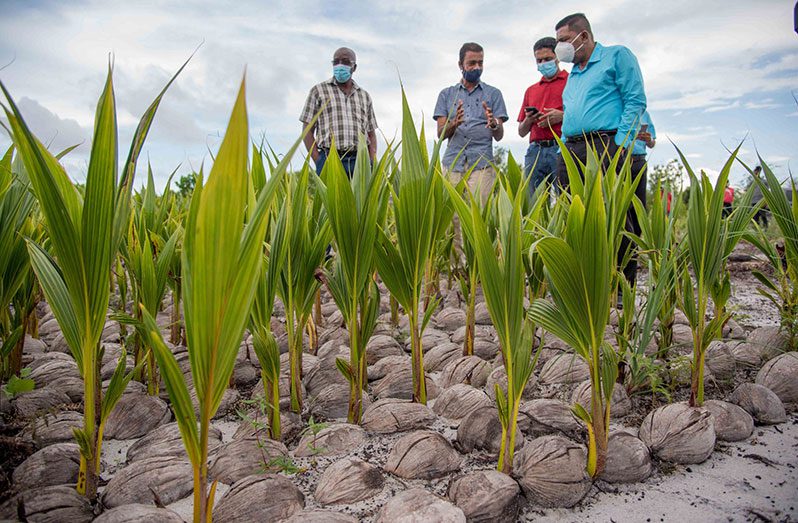As it continues participation at COP27 in Sharm el Sheikh, Egypt, Guyana’s representatives are seizing every opportunity to spotlight the importance of a just energy transition and creating effective food security systems.
Specifically, Minister of Natural Resources, Vickram Bharrat, who represented Guyana last week at an event hosted by the Inter-American Institute for Cooperation on Agriculture, emphasised that approaches to food security need to be compatible with action to adapt to climate change, as well as efforts to maintain forests and other ecosystem services.
At the event which focused on opportunities for new agricultural practices to address food security across the Americas, Minister Bharrat spoke of how Guyana leads the Caribbean Community’s (CARICOM) Food and Nutrition Security efforts. He said, “Our mission is focused on ensuring the protection of our citizens’ livelihoods and our goal is to action ’25 by 25’ meaning to cut food imports by 25% by 2025, amounting to savings of over US$5 billion.” He also cautioned that it is impossible to separate these issues from action on climate change, which is the main focus of COP27.
Minister Bharrat was joined at the event by former Norwegian Minister of Environment, Mr. Erik Solheim – who had signed the ground-breaking Guyana-Norway Agreement in 2009. At the time, the Guyana-Norway Agreement was the second largest of its kind in the world and supported the 2008 Low Carbon Development Strategy (LCDS).
For the period 2009 to 2015, Norway paid Guyana more than US$211 million in recognition of Guyana’s forest management – this money is being invested in renewable energy, adaptation to climate change, Amerindian land titling, information and communications technology (ICT) access in the hinterland, and development projects across the country.
At the event in Egypt, Minister Bharrat highlighted progress since the original LCDS was launched – culminating in this year’s launch of the LCDS 2030, which was produced after a seven-month national consultation.
Afterwards, the Minister discussed the LCDS 2030 with Solheim and updated him on plans to evolve the original Guyana-Norway Agreement’s system of payments for forest climate services to integrate with the voluntary carbon markets. He also explained how the document lays the foundation for a just transition to renewable energy resources.
Wasim Mowla, Assistant Director of the Caribbean Initiative at the Atlantic Council’s Adrienne Arsht Latin America Center, has called for Guyana to use the COP27 world stage to lead a meaningful coalition on food security.
In a recent column, he said many countries across the Caribbean, Africa and Asia are smaller States and simply do not have the same growing global presence as Guyana. The consultant said such a global coalition if led by Guyana, can play two key roles.
The Oil and Gas Sector in Guyana: A catalyst for Growth in its Agriculture and Food Sectors | OilNOW
First, it can be an added voice that can call for more concessional and blended financing for vulnerable countries that need to invest in new technologies that can help withstand weather events and changes that disrupt food production.
Secondly, Mowla said the coalition can help aggregate intellectual, financial, and technological resources among its membership.
Further, he said Guyana can add visibility to its plans to re-energise its agricultural sector.
Mowla said no country has more potential or has more eyes on it than Guyana right now. As such, he said COP27 can be a turning point on food security for the producer of world-class, low-cost oil.



